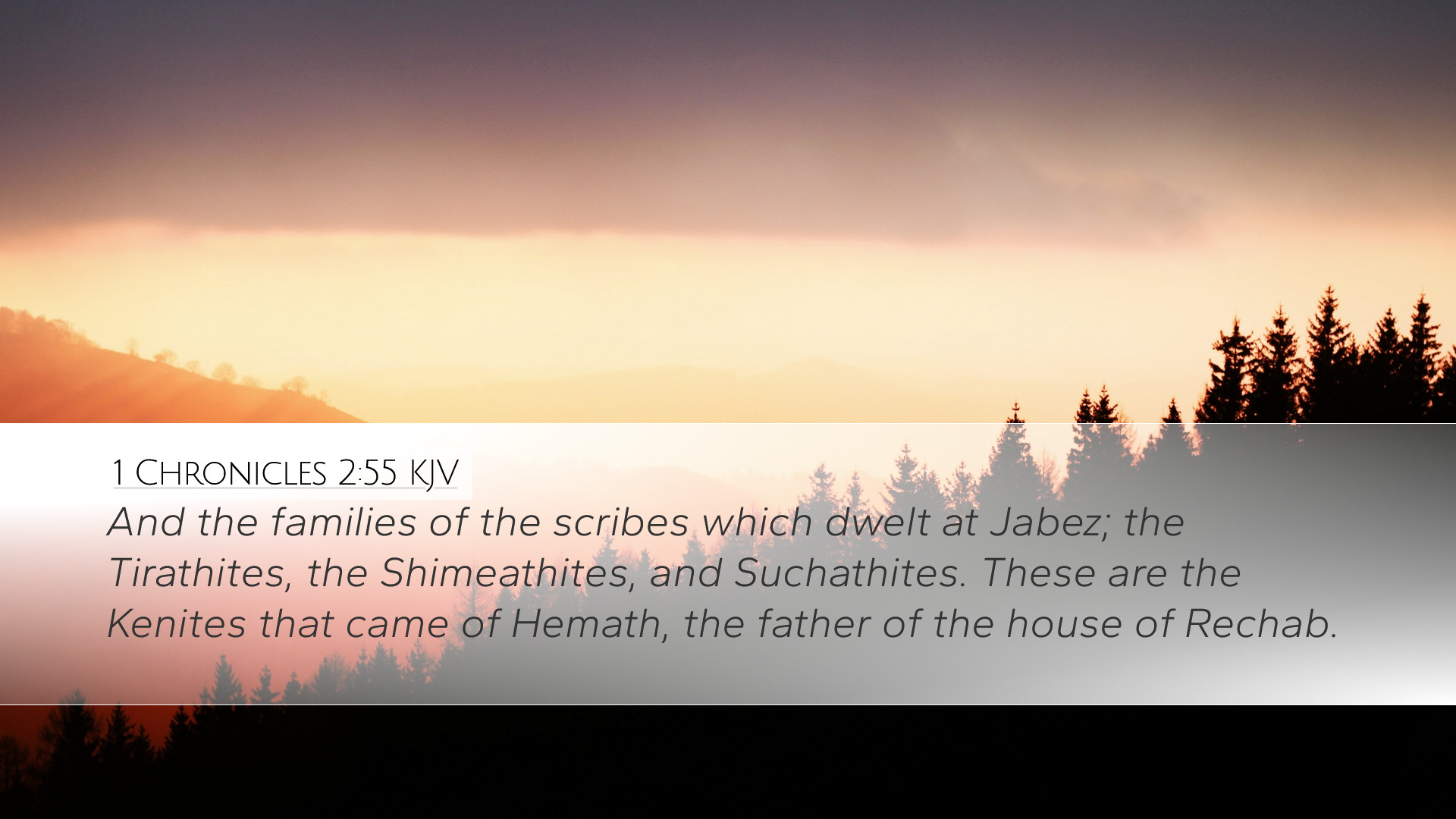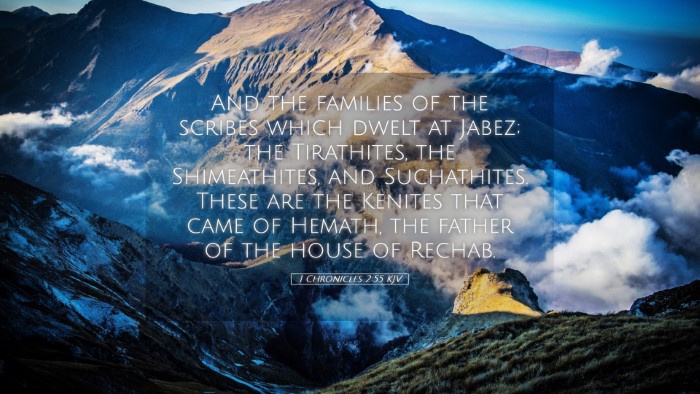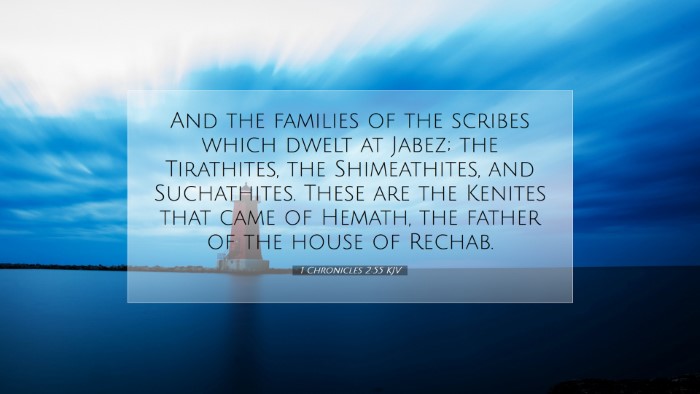Commentary on 1 Chronicles 2:55
Verse: "And the families of the scribes which dwelt at Jabez; the Tirathites, the Shimeathites, and Suchathites. These are the Kenites that came of Hamath, the father of the house of Rechab."
1 Chronicles 2:55 provides a brief but insightful look into the genealogy and occupation of various families. It highlights the specific families within the broader lineage, particularly focusing on the scribes who resided in Jabez. These details may seem minor, yet they reveal deeper themes of identity, legacy, and the significant roles certain families played in Israel's history.
Context and Significance
This passage fits into a larger context of genealogical records that serve several purposes:
- Preservation of Heritage: The meticulous recording of genealogies highlights the importance of family lineage in Israelite culture, reinforcing the concept of heritage. The scribes, known for their role in preserving Scripture and teaching the law, show the valued position of their descendants.
- Function of Scribes: Scribes were responsible for recording, copying, and teaching the Scriptures. They were crucial for the spiritual and intellectual life of the community. Thus, their families' mention indicates a lasting impact on Israel's religious practices.
- Cultural Identity: Identifying the families that descended from Kenites demonstrates the diversity within Israel. The Kenites, who had ties to the Midianites, remind us that God's people were not solely of Israelite descent but included various peoples and cultures united under Yahweh’s covenant.
Insights from Public Domain Commentaries
Matthew Henry's Commentary
Matthew Henry emphasizes the significance of the scribes and their occupation. He suggests that the mention of their family ties reflects God’s providential care in maintaining a true lineage that remained faithful to the Scriptures. The scribe's role is seen as integral to Israel's spiritual legacy, as they not only preserved God's word but also educated future generations. Henry points out that recognizing these families helps demonstrate God's plan and purpose in history. He also notes that the families of the Kenites, specifically their names, signify their occupations and notable contributions to the community.
Albert Barnes' Notes on the Bible
Albert Barnes provides a historical context for understanding the Kenites and their impact on Israel. He clarifies that the Kenites were allied with the Israelites, particularly during the Exodus, and highlights their contributions as metal workers, a significant trade in ancient society. Barnes comments on the geographical reference to Jabez, noting that it was a town of importance in Judah which bears relevance to its mention. He suggests that the genealogical records not only aim to highlight family lineage but also to establish the local ties of clans within the region, reinforcing their role and significance in the broader narrative of Israel's history.
Adam Clarke's Commentary
Adam Clarke delves into the specifics of the names mentioned, suggesting that their meanings may indicate certain characteristics or professions relevant to the ancient Israelites. He provides an etymological breakdown of the names such as Tirathites, Shimeathites, and Suchathites, illustrating how these families contributed to the priestly and administrative roles in Judah. Clarke also suggests a typological interpretation, arguing that the roles of these scribes and families prefigure the significance of biblical scholars and theologians today. He underscores the continuity of the call to preserve and teach God’s word, extending beyond ancient Israel to contemporary faith communities.
Theological Implications
The verse’s significance extends to several theological implications:
- Divine Providence: The preservation of these genealogies illustrates God’s sovereign hand in choosing and equipping individuals and families for His service throughout history.
- Covenantal Community: This passage reflects the communal nature of faith in ancient Israel. The scribes' families are not isolated entities but part of the larger narrative of God’s covenant relationship with His people.
- Call to Stewardship: Emphasizing the roles of scribes encourages the contemporary church to embrace the call to steward God’s word faithfully, much like their ancient counterparts.
Conclusion
1 Chronicles 2:55, while seemingly a simple genealogical note, is rich in meaning and context. It serves as a crucial reminder of the importance of every family in the fabric of God’s overarching story. The insights from Matthew Henry, Albert Barnes, and Adam Clarke help paint a comprehensive picture of how God has worked through families and individuals to fulfill His purposes. For pastors, students, theologians, and scholars, this verse is a testament to the importance of heritage, spiritual vocation, and the call to hold tightly to God’s truth in every generation.


